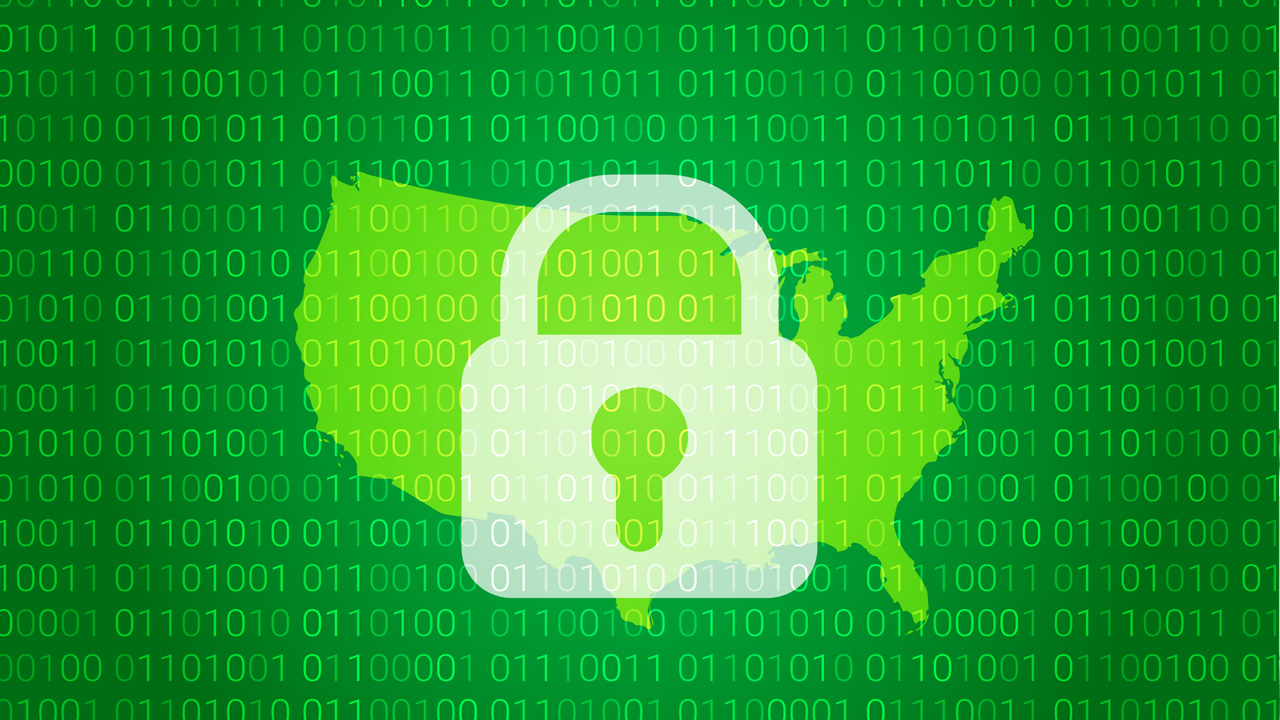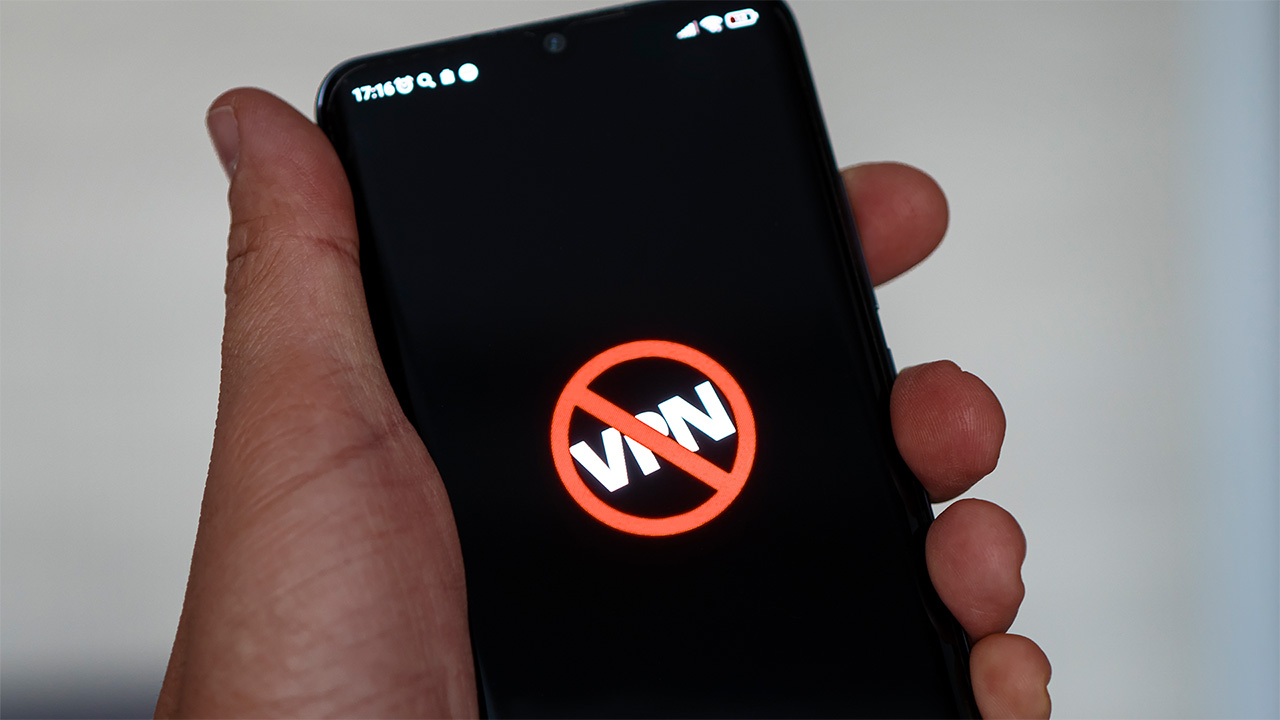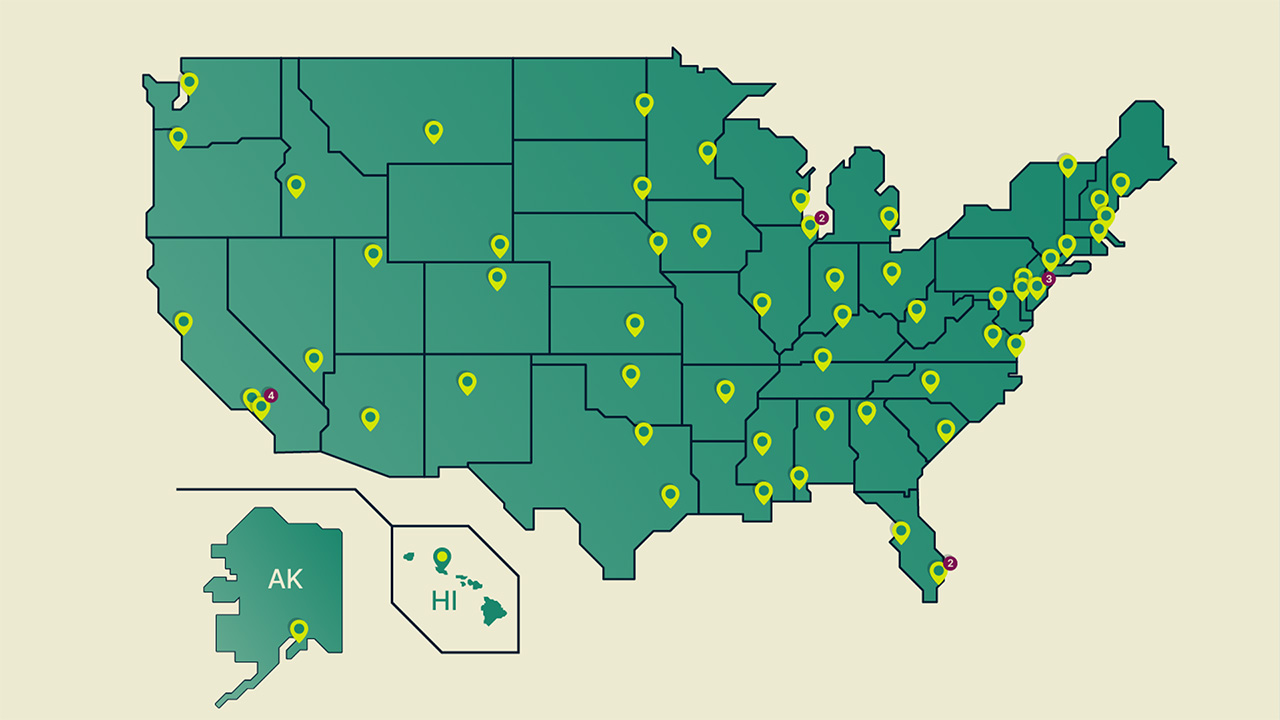Are VPNs legal in the US?
Everything you need to know about using VPNs legally

You may have heard the term VPN – or virtual private network – a lot in recent months. The online privacy tools encrypt your internet traffic and help protect your personal data when you browse the web.
By connecting to a VPN server before the internet, an encrypted 'tunnel' is created and your data is kept safe from hackers, third-parties, and prying eyes.
The best VPNs not only protect your data, but can help you access geo-restricted streaming content and navigate website blockages and internet censorship.
In recent months, we have seen increased attacks on internet freedoms in the US. Examples include Arizona's imminent age verification laws, Michigan's attempted VPN ban, the saga of the TikTok ban, and big tech providing the government with your data.
Many Americans are turning to the best US VPNs as a result and the country boasts one of the largest VPN markets. But are VPNs legal? Potential users aren't always sure, so we'll run through everything you need to know about VPN legality in the US.
ExpressVPN | 2 years + 3 months FREE | $3.49 per month
ExpressVPN is an ideal choice for a US VPN. It's fast, boasts rock-solid privacy and security, and is very easy-to-use thanks to its simple apps. Premium tiers also come with great extra features.
What you'll get...
🌍 Servers in every US state
🔑 Post-quantum encryption
📃 Verified no-logs policy
🚀 Fast speeds & streaming unblocking
💵 Three tiers of plan to suit any need
A two-year year deal starts at $3.49 per month ($97.72 up front pre-tax). You'll also get 3 extra months of protection for free and a 30-day money-back guarantee.
VPNs are entirely legal in the US
The short answer is yes, VPNs are completely legal in the US.
You won't get in trouble for using a VPN and you'll be making yourself safer online. VPNs are widely available and can be purchased and downloaded directly from provider websites or app stores.
Some providers are even based in the US. Private Internet Access (PIA) and IPVanish are two big names who operate out of the country.
Research suggests the US VPN market was worth $17.88 billion in 2024 and is expected to exceed $20 billion in 2025. Figures show that around 43% of Americans use a VPN and this number may well increase in the near future.
We have seen attempts from some states to crackdown on VPN usage. Lawmakers in Michigan want to block "circumvention tools" as part of a "public morals" bill.
At this stage it's unlikely VPNs would be banned in the US, but it's vital laws like this are opposed at every stage.

Although not illegal, certain VPN uses can break terms of service. The main example is when using one of the best streaming VPNs.
Netflix tries to prevent users from using a VPN to access regionally blocked content. They’re free to do so in whatever legal ways they see fit, but you are equally free to attempt to get around those restrictions.
A streaming service could never report someone to law enforcement just for using a VPN to view content that’s unavailable in the US. But it can break its terms of service and you could in theory have your account terminated – although we've never heard of this happening to anyone.
You may encounter websites or other online services that don't work with a VPN. YouTube isn't always a fan and the tools can interfere with services such as online banking.
Usually switching to a different VPN server will fix any connection issues. But if problems persist, you can use VPN split tunneling to select certain apps that will be exempt from VPN protection.

VPNs don’t make illegal activity legal
Just because VPNs are legal to use doesn’t mean you’re immune from the law while using one.
Getting around Netflix content restrictions and keeping your daily browsing private isn’t a criminal offense – but there are plenty of crimes you can commit over the internet. A VPN won’t protect you from prosecution if you use it for something illegal.
Authorities have been known to demand user data from VPN companies but there is often very little to provide. The most secure VPNs publish Transparency Reports on their websites detailing the number of data requests they received and what they handed over – usually nothing.
Windscribe's recent court case shows the steps authorities could take when investigating a crime. It also highlights the importance of an audited no-logs policy.
Neither Tom's Guide or VPN providers condone the use of VPNs for illegal activities online.
A good rule of thumb to follow is anything that would be illegal without a VPN will also be illegal with one.
Why would someone in the US want a VPN?
Along with accessing regionally restricted steaming content, VPNs have additional benefits.
If you frequently connect to the internet on public Wi-Fi hotspots, a VPN will protect your traffic from hackers who may have compromised the network and are looking to steal your information.
Similarly, a VPN can help you get around other network-level restrictions, such as those placed on work and school networks. Some people also use one of the best torrenting VPNs to safely share files.

As mentioned, numerous age verification laws have been passed in the US. According to the Free Speech Coalition (FSC), 22 states have laws in effect, with three more states about to join the list.
These laws require users to provide ID and undergo age checks in order to access adult content. Despite good intentions, these checks involve sharing sensitive personal data with third-parties. Opponents are concerned about the cybersecurity risks that could result from a data breach.
US age verification laws vary from state to state. But in the UK, they were imposed nationwide via the Online Safety Act. VPN usage surged as people attempted to bypass age checks by connecting to a VPN server and gaining a non-UK IP address. We could therefore see something similar in the US.
We test and review VPN services in the context of legal recreational uses. For example: 1. Accessing a service from another country (subject to the terms and conditions of that service). 2. Protecting your online security and strengthening your online privacy when abroad. We do not support or condone the illegal or malicious use of VPN services. Consuming pirated content that is paid-for is neither endorsed nor approved by Future Publishing.

George is a Staff Writer at Tom's Guide, covering VPN, privacy, and cybersecurity news. He is especially interested in digital rights and censorship, and its interplay with politics. Outside of work, George is passionate about music, Star Wars, and Karate.
- Alex McOmieContributing writer
You must confirm your public display name before commenting
Please logout and then login again, you will then be prompted to enter your display name.
 Club Benefits
Club Benefits






